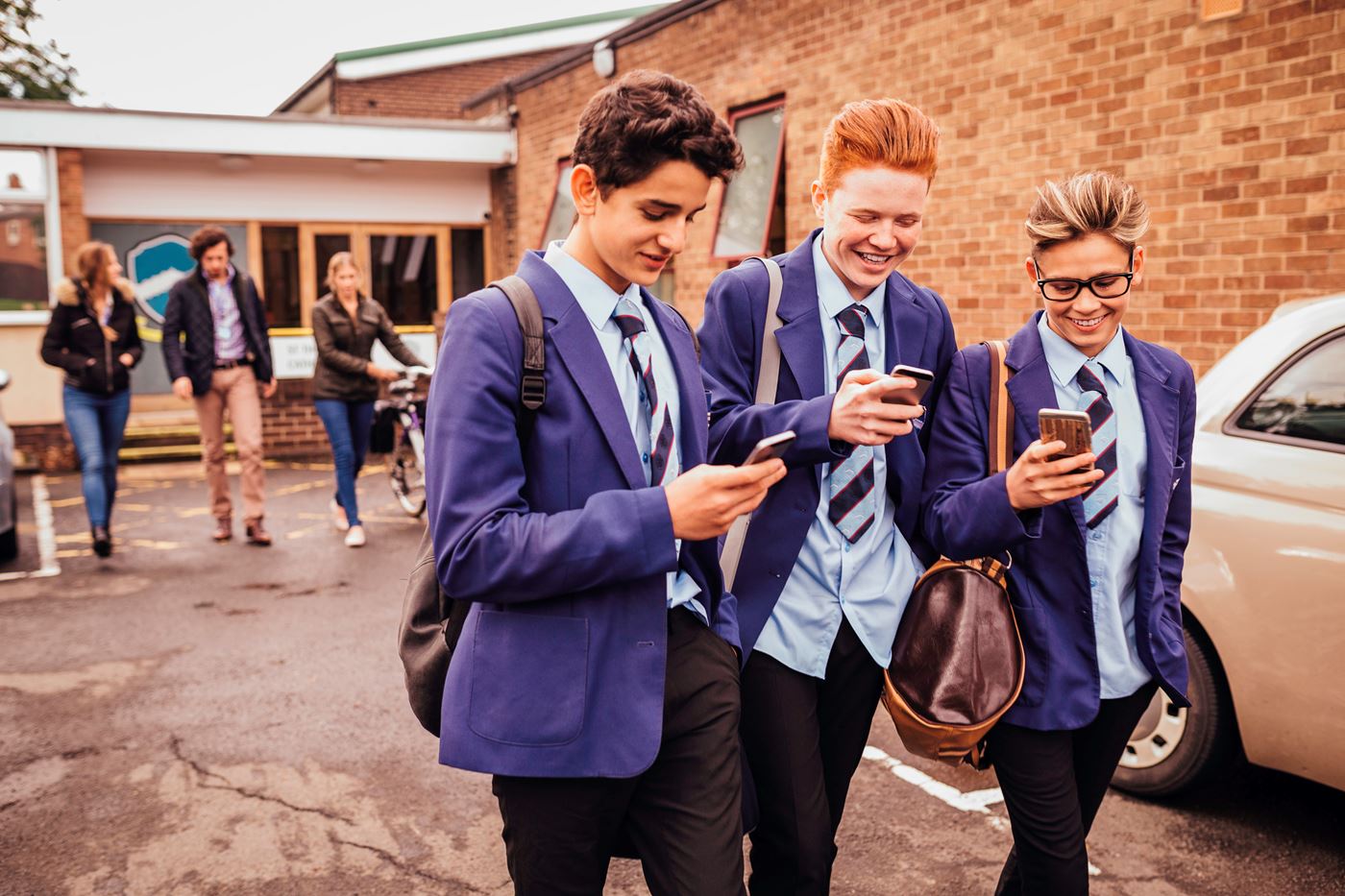The mental health of the nation’s children is a topic of significant discussion at the moment and the role of technology in the debate is an area particularly under the microscope. With concepts such as mindfulness and ‘growth mindset’ now firmly forming a part of teachers’ vocabulary, we are asking ourselves which other factors are at play in children’s emotional wellbeing, and what part schools have to play in creating the most supportive environment.
Only a small number of the anxieties a child faces come from the classroom. Those that are brought into the classroom from home will have a profoundly negative impact on a child’s learning journey, and potentially those of other students. The question we must ask is to what extent a school can mitigate for this by bettering their communication with homes and parents.
Teachers are, of course, centre stage. They can effectively be seen as ‘co-parents’ of the child, in that they take responsibility for the child while they are on the school premises. If homes have difficulties, then schools and families have to work even harder to maintain a good relationship. The importance of this relationship in the educational experience of the child cannot be overstated:
“Supporting the home-school relationship cannot be seen as an ‘added extra’ to the core business of schools. It is an essential factor in children’s learning and can inform the work of the school on many levels, including how the curriculum is taught, pastoral care, extra-curricular development and behaviour strategies.”[1]
Any counsellor will tell you that one of the keys to a healthy relationship is good communication. But how often do teachers actually communicate meaningfully with parents? All too frequently, the main points of contact are through end of term reports or Parent’s Evenings. If anything takes place outside these particular windows, they are generally as a result of a concern and as such will tend to be stressful events.
If we can find a way to have regular communication with parents then these issues will not have time to escalate and the stress levels for students, parents and teachers will be lower. Ongoing communication and updates also help to ensure that face-to-face meetings are more insightful, as the parents are already informed of their child’s day-to-day school experience.
This is the point at which EdTech becomes an important facilitation device. Can tech provide a platform for such communication without becoming burdensome on teachers and parents? Certainly, when it’s done sensibly. Teachers should not be spending excessive time emailing updates to families, and parents do not want to be ‘spammed’ with emails from school. The two topics that are most important to parents are:
- What is my child learning?
- What progress is my child making?
All of this information is already available and being used by teachers and students as part of the teaching and learning process. The trick lies in how we can make parents part of this ‘learning conversation’.
Traditional VLEs already provide a channel whereby course structures and learning resources can be made available to both students and parents, but this only covers the first part of the question - what is my child learning. This material needs to be supplemented with information about how the student is progressing if we are to provide parents with a proper picture of their child. A good technology solution will provide a platform whereby teachers can quickly and easily share the feedback they are giving with parents. This allows the parents to be proactively engaged in their child’s learning, rather than simply the course they are following. In his report on the impact of Parental involvement on pupil achievement, Charles Desforges is clear that,
‘Parents’ understanding of their children’s progress is founded on rigorous discussion, honest reporting and swift contact when important information needs to be shared.’[2]
The best solutions do this in a way that does not increase the workload of the teacher, and allows parents to ‘pull’ information from the school at a time that suits them, rather than have it continuously ‘pushed’ to them. This might be data concerning the behaviour of the child, or homework that has been set/completed, along with the marks and feedback that they have received. The more informed the parents are, the stronger the relationship between school and home will be, and as such less stress should be experienced by all parties. In turn, this frees up time and space for matters concerning a child’s emotional wellbeing to be properly addressed.
The transformational impact of technology on teaching and learning is well-documented and constantly burgeoning. However, we know that there are many other factors that can have an effect on educational achievement as emotional wellbeing is becoming better understood. As the capabilities of EdTech continue to grow and evolve, it will become increasingly important to consider the influence it has on these factors, and it can best be geared to support and enhance the learner. The home/school partnership is a key aspect in learning and we, as educators need to know how technology can best be used for the good of all those involved in the teaching and learning process: students, teachers and parents.
“The relationship between home and school is a powerful influence on children’s learning and development, which digital technologies have the capacity to support and enhance.”[3]
[1] Grant, L. Developing the home-school relationship using digital technologies, 2010
[2] Desforges, C., Abouchaar, A., The Impact of Parental Involvement, Parental Support and Family Education on Pupil Achievements and Adjustment: A Literature Review, 2003
[3] Grant, L. Developing the home-school relationship using digital technologies, 2010

